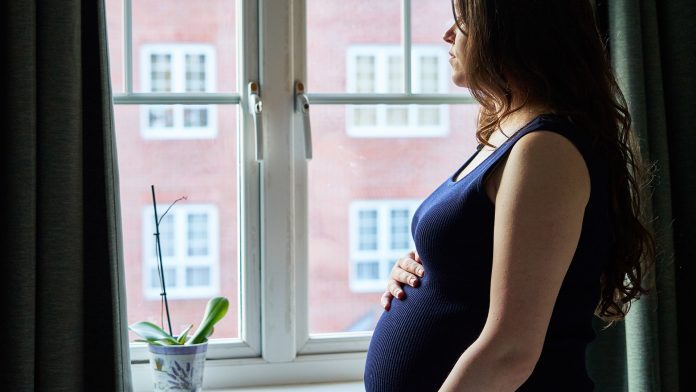
Research emerging from the UK has highlighted a rise in depression during pregnancy due to the COVID-19 pandemic.
A study pioneered by the University of Essex has identified a significant increase in depression during pregnancy for expectant mums throughout the course of the pandemic, illuminating the health impacts of COVID-19 beyond the virus itself.
The University of Essex researchers discovered that although social support protected from symptoms of anxiety attributable to the pandemic, barriers to maternity services caused by lockdowns and other restrictions impacted the mental health of mothers-to-be. Furthermore, the removal of appointments and other changes to face-to-face contact may have affected well-being.
Dr Silvia Rigato, the senior author of the study, commented: “It is vital to protect maternal well-being during pregnancy and beyond to ensure that all children, and their new families, are given the best possible start in life”.
The study’s findings are published in BMC Pregnancy and Childbirth.
Analysing depression during pregnancy
The team’s peer-reviewed study of 150 women was conducted during the height of the pandemic – between April 2020 and January 2021 – before the COVID vaccination programme was implemented. The study was led by Dr Maria Laura Filippetti and Dr Rigato, who are researchers at the Essex Babylab in the University of Essex.
The investigation revealed a spike in depression during pregnancy, increasing by 30% from pre-pandemic levels – from 17% to 47%. Moreover, anxiety rates also increased from 37% to 60% in expecting mothers.
The study revealed that prenatal trauma like the one experienced during the COVID-19 pandemic can increase vulnerability to mental health problems. Furthermore, the study identified that pregnant women with higher depressive symptoms were more likely to feel less attached to their unborn babies and women who perceived the impact of COVID-19 more negatively displayed higher levels of anxiety.
Dr Rigato said: “While this result is in line with previous observations that women’s mood during pregnancy influences the early relationship with her child, it reinforces the need for authorities to support women throughout their pregnancy and the postnatal period in order to protect their health and their infants’ development.”
Enhancing social support
The research elucidated the crucial role of robust social support in safeguarding expecting mothers’ mental health. Additionally, help from partners, family, friends, and the NHS acted as a protective factor and was associated with fewer symptoms of depression during pregnancy.
Dr Filippetti said: “The high rates of depression and anxiety during the pandemic highlighted by our study suggest that expectant women are facing a mental health crisis that can significantly interfere and impair mother-infant bonding during pregnancy, and can potentially impact on childbirth outcome, as well as later infant and child development.”
The team is hopeful that their study will be used to investigate how the COVID-19 pandemic impacted children’s development, the mental health of the mother post-partum, and how fathers coped during pregnancy and beyond.







